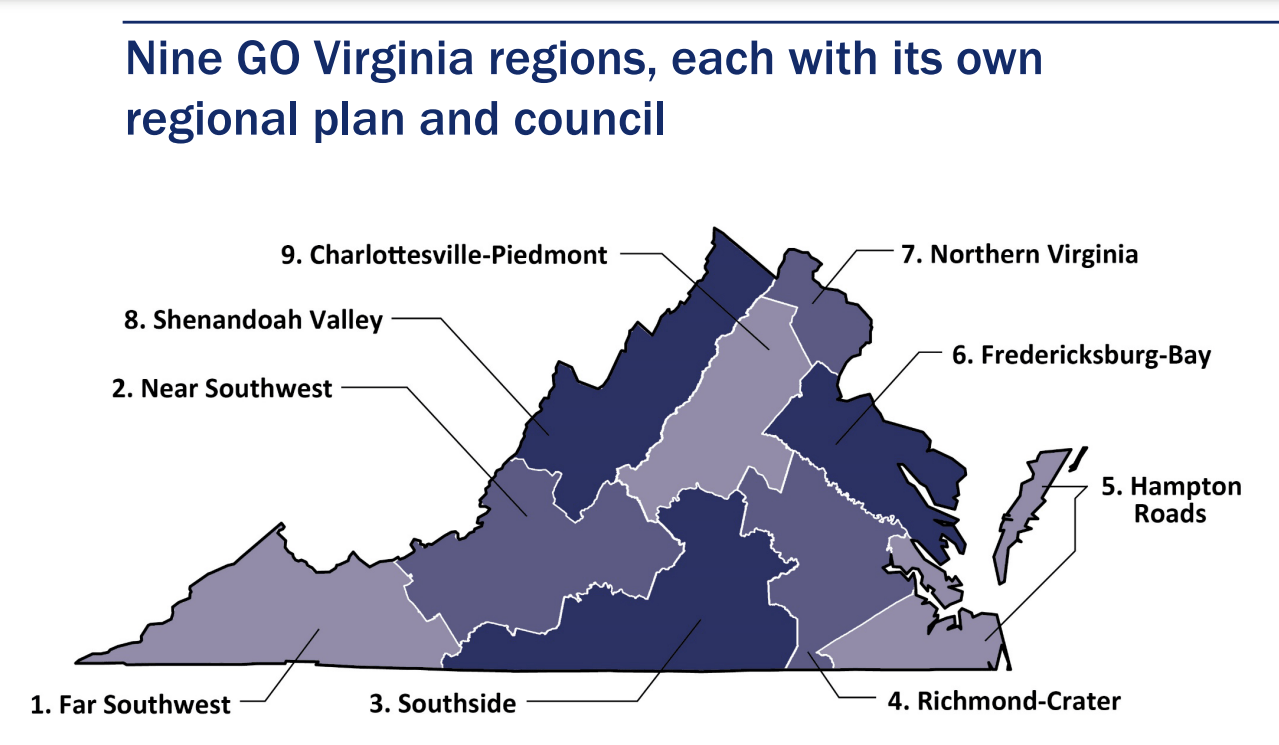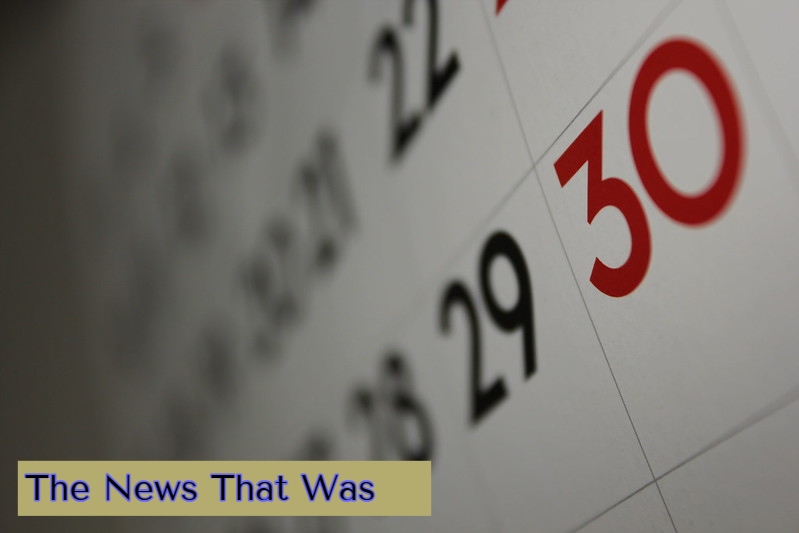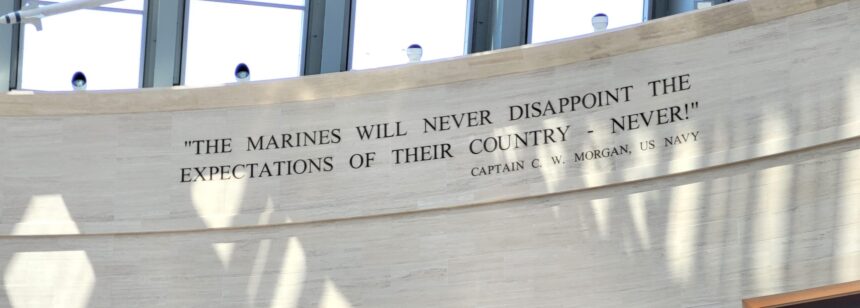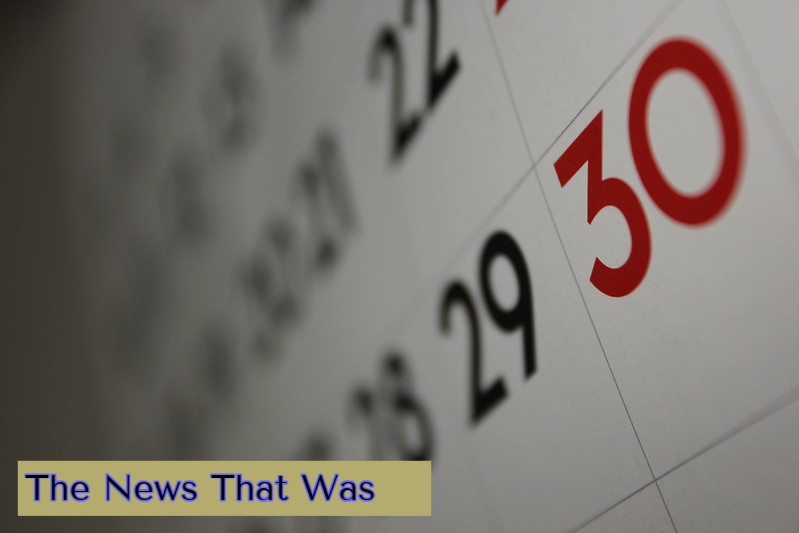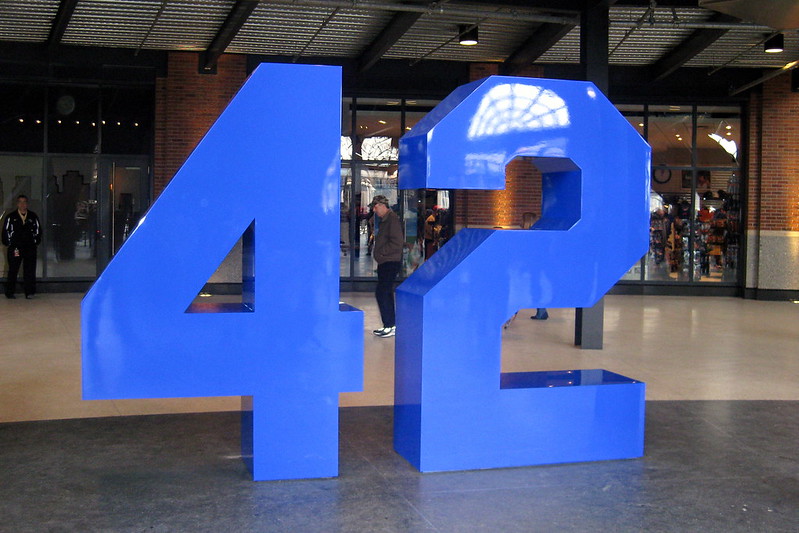
Jackie Robinson was, indeed, a hero. How many of us have what it takes to be the kind of hero that he was?
by Martin Davis
EDITOR-IN-CHIEF
The world needs heroes. And few shine brighter than Jackie Robinson, whose number 42 will be worn today by every major leaguer in tribute of his breaking baseball’s color barrier in 1947.
While this day is set aside for recognizing sporting achievement, let’s not forget Robinson’s life was about far more than baseball. He was a civil rights advocate who worked closely with – and occasionally disagreed with – Martin Luther King Jr.
And he was a relentless advocate for Black Americans to succeed not just on the field, but to take on leadership roles in baseball’s coaching boxes and executive offices.
“I’m extremely proud and pleased to be here this afternoon,” he said when he threw out the first pitch at the second game of the 1972 World Series between the Cincinnati Reds and the Oakland A’s, “but must admit I’m going to be tremendously more pleased and more proud when I look at that third base coaching line one day and see a Black face coaching in baseball.”
Watch Robinson’s Speech on October 15, 1972
After baseball, he was involved in business, including launching a construction firm that focused on building affordable housing. His other ventures included serving as a vice president at Chock full o’nuts, and launching a bank in Harlem.
He purportedly told Henry Aaron, who would go on to break Babe Ruth’s home-run record, “the game of baseball is great, but the greatest thing is what you do after your career is over.”
He also knew tragedy. His oldest son had difficulties growing up, served in Vietnam and was wounded, became addicted to drugs, and was killed in an automobile accident in 1971 after he had managed to kick addiction. This led Robinson to spend the time he had left on this earth – he died on October 24, 1972, just nine days after his World Series appearance – as an advocate for ending drug use.
And in an important way, his success on the field wasn’t about baseball, either.
Robinson was a gifted athlete in four sports – baseball, of course, but also football, basketball, and track. He lettered in all four at UCLA. But his athletic prowess alone isn’t what got him into the Major Leagues. Rather, it was his demeanor.
It is difficult, if not impossible, for us today to understand the level of verbal abuse Robinson endured while a member of the Dodgers, during his tenure in the Army, and during his playing days in college.
Robinson suffered it all without striking out or lashing back. He was, as Steven Pressfield might say, a true “professional.”
In his book The War of Art, Pressfield says of the professional and misery:
“The [person] committing himself to his calling has volunteered for hell, whether he knows it or not. He will be dining for the duration on a diet of isolation, rejection, self-doubt, despair, ridicule, contempt, and humiliation. … He has to know how to be miserable.”
Few people enter their profession knowing this is what they signed up for. They learn to manage it as they grow.
Robinson, however, was never in doubt.
And yet, every day, he took to the field, and faced an endless array of hecklers and worse. And he did it by elevating himself to become one of the finest hitters and baserunners in the game.
This is what heroes are – not those who aspire for accolades, but those who aspire for misery in the cause of a greater good.
Jackie Robinson did so, and did so willingly.
This is a hero – and there are precious few of them today in this world.


